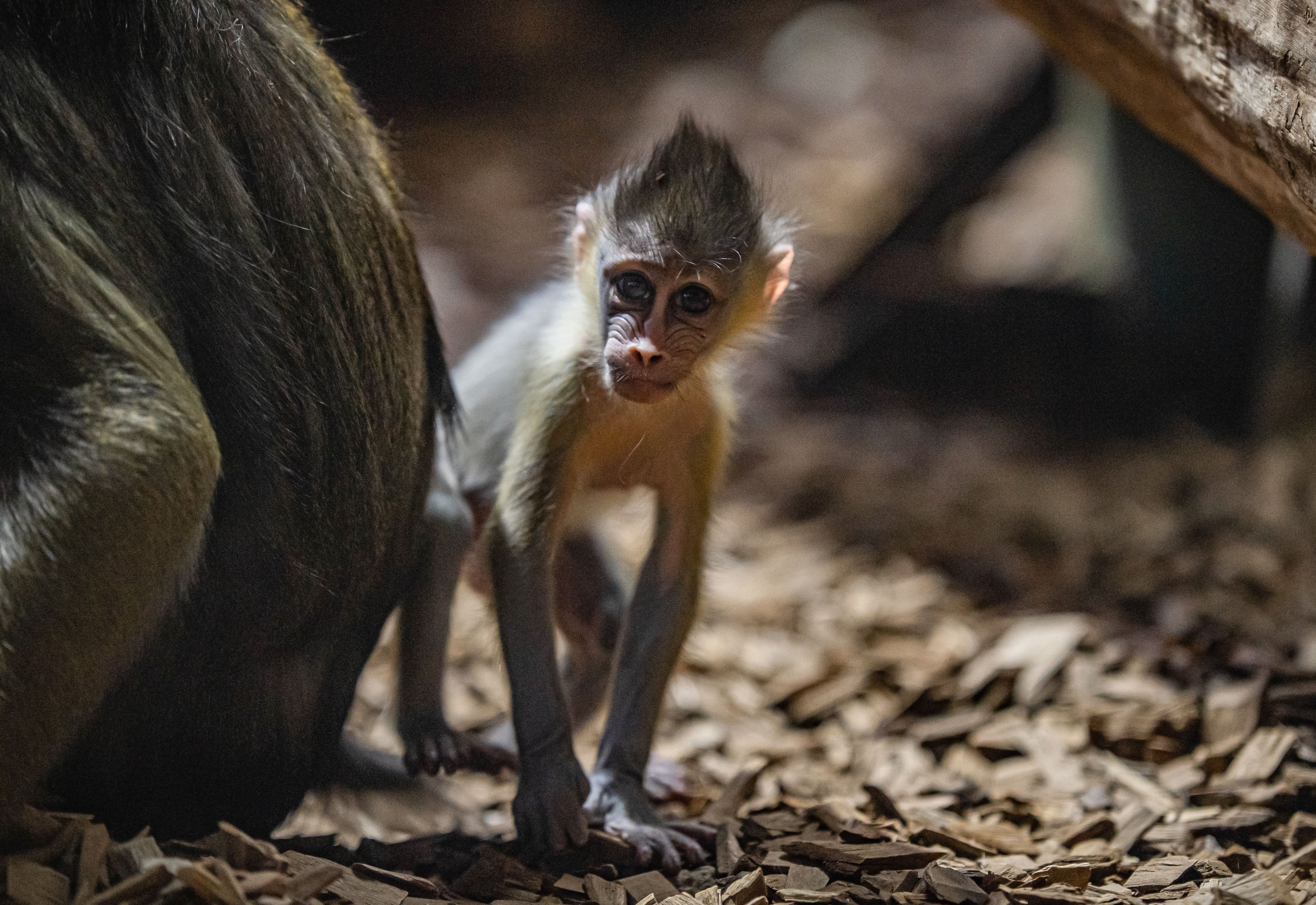Mandrill babies born five weeks apart after 10-year gap at zoo
The pair were the first of the primate species to be born at Chester Zoo in over a decade.

Two baby mandrills have been born at a zoo after a gap of more than 10 years.
The pair were born five weeks apart at Chester Zoo more than a decade after the last such birth there.
Primate keeper Siobhan Ward said: “You know what they say about buses! To have two baby mandrills, born within weeks of each other, after more than 10 years, is just incredible.
“The two new arrivals will only spend a few months at their mums’ sides before gaining enough confidence to explore on their own with the rest of the group.”
The babies, who have not yet been sexed, are half-siblings born to the same father – 11-year-old Kamau.
Brio, 10, gave birth to the first, while the second arrived to 17-year-old Obi.
Mandrill numbers are declining in the wild and they are listed as a vulnerable species on the International Union for Conservation of Nature’s Red List.
Dr Nick Davis, assistant curator of mammals, said: “Mandrills live in large and very complex groups made up of strict hierarchies.
“Our primate experts, using their decades of experience and knowhow, have closely monitored the group over the years to understand its delicate balance.
“Now, Kamau, a new dominant male who has been carefully integrated with the other 10 members, appears to have really hit it off with the females.
“The two youngsters he has sired will now join a co-ordinated breeding programme with other leading conservation zoos and add to the important insurance population for this charismatic species.”
Bookmark popover
Removed from bookmarks